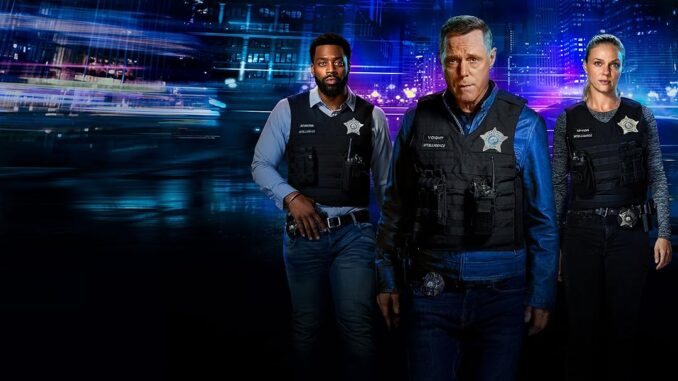
Behind the Badge and Beyond the Law: Unpacking the Toughest Storylines in Chicago PD History
Chicago PD, with its gritty realism and morally ambiguous characters, has carved a niche for itself in the crowded landscape of police procedurals. More than just chasing criminals, the show delves into the psychological toll of the job, the blurred lines between justice and vengeance, and the systemic issues plaguing the city it serves. While cases involving drug busts and gang violence are commonplace, it's the storylines that force viewers to confront uncomfortable truths and question the very foundations of the show's protagonists that truly resonate. These "toughest" storylines, often laced with personal trauma, ethical dilemmas, and explorations of societal injustices, are what elevate Chicago PD beyond the typical cop show.
One such storyline, and perhaps the most harrowing in the show's history, revolves around Detective Erin Lindsay's struggle with addiction and her subsequent relapse. Lindsay, a character defined by her sharp instincts and unwavering loyalty to Voight, embodies the potential for redemption. However, her past trauma, stemming from a neglected childhood and a history of drug abuse, constantly lurks beneath the surface. Watching her grapple with sobriety, navigate the pressures of undercover work, and ultimately succumb to her demons after a particularly brutal case involving child exploitation, is gut-wrenching. The storyline's impact stems from its unflinching portrayal of addiction as a disease that doesn't discriminate, even afflicting those who appear strong and capable. It forces the audience to confront the reality that even heroes can be vulnerable, and that the fight for recovery is a lifelong battle, demanding constant vigilance and support.
Another storyline that pushes viewers to the edge of their seats and challenges their moral compass is the recurring exploration of Voight's methods. Detective Sergeant Hank Voight, the leader of the Intelligence Unit, operates in a morally gray area, often bending or breaking the rules to achieve what he perceives as justice. While his intentions are often rooted in a desire to protect the innocent and punish the guilty, his methods frequently involve intimidation, coercion, and even extrajudicial killings. The show doesn't shy away from depicting the consequences of Voight's actions, highlighting the slippery slope he treads and the potential for corruption. A particularly impactful arc saw Voight covering up a murder committed by his son, Justin, blurring the lines between paternal loyalty and sworn duty. This storyline forced viewers to grapple with the question of whether the ends justify the means, and whether a man who routinely violates the law can truly be considered a force for good. The ambiguity of Voight's character is precisely what makes him so compelling and contributes to the show's ability to spark meaningful conversations about law enforcement ethics.
Beyond individual struggles, Chicago PD also tackles larger societal issues, often through storylines that are deeply unsettling and raise uncomfortable questions about race, policing, and social justice. The recurring theme of police brutality and its disproportionate impact on marginalized communities is consistently explored. One poignant example involves the shooting of an unarmed black teenager by a white officer, forcing the unit to navigate the complexities of racial bias, public outrage, and internal investigations. The show doesn't offer easy answers, instead presenting multiple perspectives and highlighting the systemic factors that contribute to such tragedies. By humanizing both the victim and the officers involved, Chicago PD forces viewers to confront their own biases and consider the perspectives of those often overlooked in the aftermath of such incidents.
These challenging storylines are not just sensational plot devices; they serve a crucial purpose. They force viewers to confront the complex realities of police work, the moral ambiguities of the justice system, and the deeply ingrained social inequalities that contribute to crime. By exploring these issues with nuance and unflinching honesty, Chicago PD transcends the typical police procedural, becoming a platform for social commentary and a catalyst for critical thinking. While the show may entertain with its high-stakes action and dramatic twists, it's the tough storylines, the ones that linger in the mind long after the credits roll, that truly define its legacy. They remind us that behind the badge, behind the law, there are complex human beings grappling with difficult choices in a world that is anything but black and white. And that, ultimately, is what makes Chicago PD so compelling and enduring.
